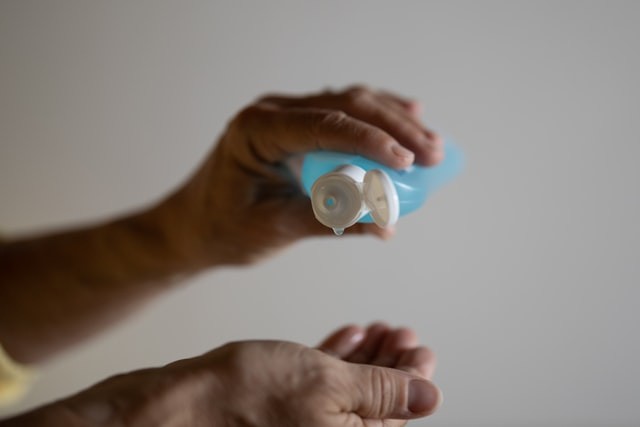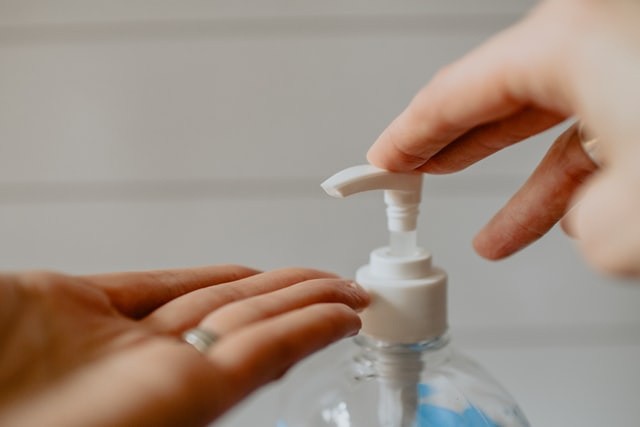The Food and Drug Administration (FDA) has warned the public about the 9 hand sanitizers that were identified to be toxic for human use. According to Newsweek's latest report, The FDA identified certain hand sanitizers that can be dangerous when digested or absorbed by the skin.
Also Read: COVID-19 Update: People with High Levels of Cortisol or Stress Hormone May Have Higher Risk of Death

Also Read: COVID-19 Update: Expert Believe Coronavirus May Die Out Before a Vaccine Comes, But What Do Others Say?
It was reported that these hand sanitizers were manufactured in Mexico, and whose usage was advised against by the FDA. The potential presence of methanol, also known as wood alcohol, can be present in the sanitizer manufactured by Eskbiochem SA de CV as stated by the health agency on its official website.
Below is the list of the nine hand sanitizers that should be avoided as advised by the FDA.
- CleanCare NoGerm Advanced Hand Sanitizer 75% Alcohol (NDC: 74589-008-04)
- Esk Biochem Hand Sanitizer (NDC: 74589-007-01)
- All-Clean Hand Sanitizer (NDC: 74589-002-01)
- CleanCare NoGerm Advanced Hand Sanitizer 80% Alcohol (NDC: 74589-005-03)
- The Good Gel Antibacterial Gel Hand Sanitizer (NDC: 74589-010-10)
- Lavar 70 Gel Hand Sanitizer (NDC: 74589-006-01)
- Saniderm Advanced Hand Sanitizer (NDC: 74589-001-01)
- CleanCare NoGerm Advanced Hand Sanitizer 80% Alcohol (NDC: 74589-003-01)
- CleanCare NoGerm Advanced Hand Sanitizer 75% Alcohol (NDC: 74589-009-01)
FDA advices against toxic sanitizers
According to the FDA's latest report, immediate treatment should be sought by consumers who have been exposed to the hand sanitizers containing methanol since to reverse the toxic effects of methanol poisoning. Individuals exposed to a substantial amount of methanol can experience vomiting, headache, blurred vision, nausea, seizures, coma, permanent blindness, and even permanent damage to the nervous system or even death.

The people who are most at risk for methanol poising are young children who accidentally ingest these products, and adolescents and adults who drink these products as an alcohol substitute, although all persons using the products on their hands are also at risk.
The FDA suggested that consumers should wash their hands with soap and water for at least 20 seconds, especially before eating, after going to the bathroom, and even after blowing one's nose, sneezing, or coughing.
The Centers for Disease Control and Prevention (CDC) also recommends consumers to use an alcohol-based hand sanitizer that contains at least 60% ethanol if water and soap are not available. When quality issues arise with hand sanitizers, the FDA promised to remain vigilant and will continue to take action. False and misleading claims for hand sanitizers are currently being investigated by the FDA.




